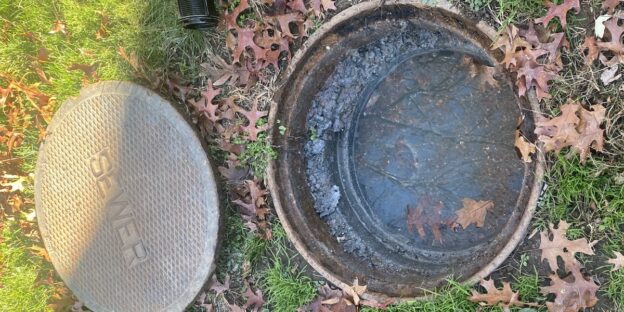Understanding the signs and importance of Title 5 regulations are vital components to maintaining a compliant and healthy septic system. This blog post explores some of the more common signs of system failure as well as explain its importance – Title 5 Specialists has dedicated themselves to helping Massachusetts homeowners navigate these complexities of septic compliance successfully.
Warning Signs of Title 5 septic Failure:
Early identification of septic failure will save money and decrease health risks, so watch for these warnings signs:
- Slow Drains and Backups: If your sinks, toilets, or drains take too long to drain or have frequent backups it could be an indicator of septic issues. Blockages could be due to clogged pipes or an obsolete tank failing.
- Unpleasant Odors. Any unpleasant odors near the drain field and/or septic tanks could be an indicator that your system is malfunctioning, possibly due to seepage/backup of waste products from sewage system seepage or backup.
- Standing Water: Puddles in your yard could be an indicator of an undiagnosed drain system or septic tanks which cannot properly process and distribute waste water.
- Plant and Grass Growth: Contrary to what may seem logical, an increase in plant or grass growth near a drainfield could signal systemic failure. Excess nutrients found in wastewater act like fertilizer to promote this kind of growth.
Understanding Title 5 Inspections:
Title 5 is the Massachusetts state regulation which covers inspection, maintenance, and operation of septic systems. The regulation seeks to protect both public health and the environment by making sure these systems function as they should. Key components of Title 5 include:
- Title 5 regulations mandate that septic tanks be inspected prior to sale or transfer, and Title 5 inspectors and specialists are licensed to carry out such an inspection.
- Compliance Standards : An inspection evaluates compliance with Title 5 regulations as well as the condition of tank and drainage field, seeking signs of structural or operational failure as well as environmental hazards.
- Repairs and upgrades: When an inspection identifies issues or failures with their system, it is the responsibility of the property owner to address these within an agreed upon timeline. Repairs or upgrades might be necessary depending on their severity.
Title 5 Inspections Are Essential: There are multiple advantages associated with adhering to Title 5 regulations:
- Protecting Health & Environment: Septic system inspection and maintenance should be scheduled regularly in order to keep it working effectively and prevent contamination of groundwater sources and potential health risks for nearby residents.
- Avoiding Costly Replacements and Repairs: By identifying and fixing problems early with your septic systems, you can avoid costly replacements in the future. Early repairs made can save money while prolonging its lifespan.
- Title 5 Inspections Support Seamless Property Transactions. Title 5 Inspections Provide Transparency and Peace of Mind during Property Transactions for Buyers, Sellers and Real Estate Agents alike. A current certificate can help speed up the process and prevent last minute surprises from arisening.
Conclusion of Title 5 Inspections and Failures:
Massachusetts homeowners must be aware of the warning signs associated with septic system failure and understand why Title 5 inspections are so crucial in protecting the environment and prolonging septic systems by remaining vigilant and following Title 5 regulations. By doing this, homeowners can protect both themselves and the planet through better practices and protection measures.
At Title 5 Specialists, we are experts on Title 5 septic systems. Our licensed inspectors are highly qualified and experienced at evaluating septic systems accurately. Call us now on (857) 267 3849 to arrange your Title 5 inspection; our licensed inspectors will ensure your septic is both compliant with regulations and healthy!
MA Title 5 inspectors are the only reliable means of determining whether your system is failing. When hiring one, choose an independent inspector that does not perform repairs or replacements so you get an honest assessment.

